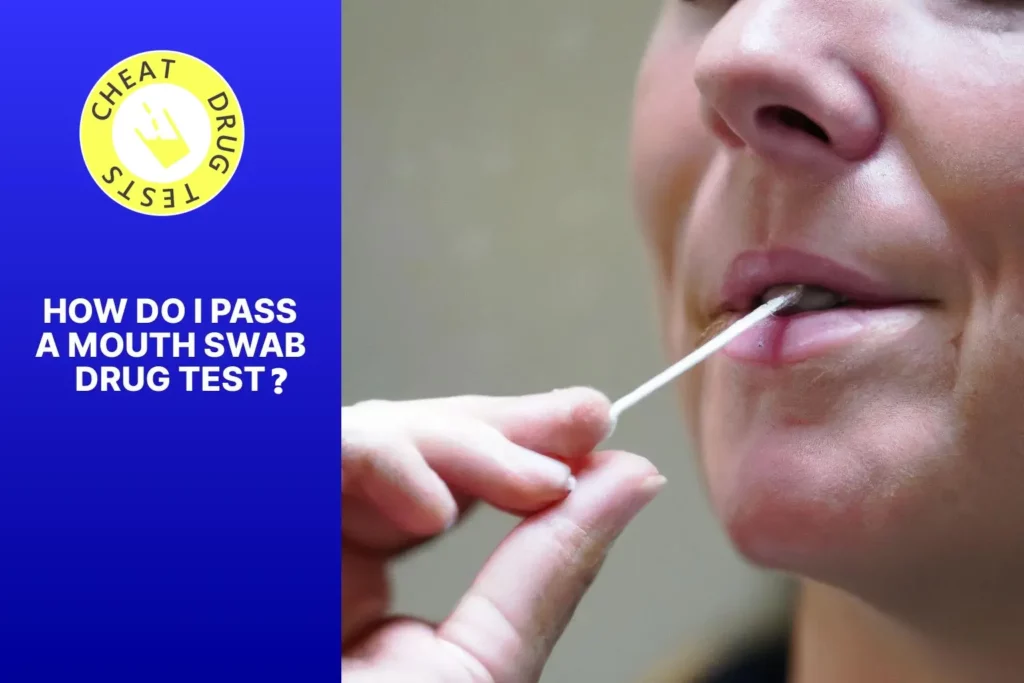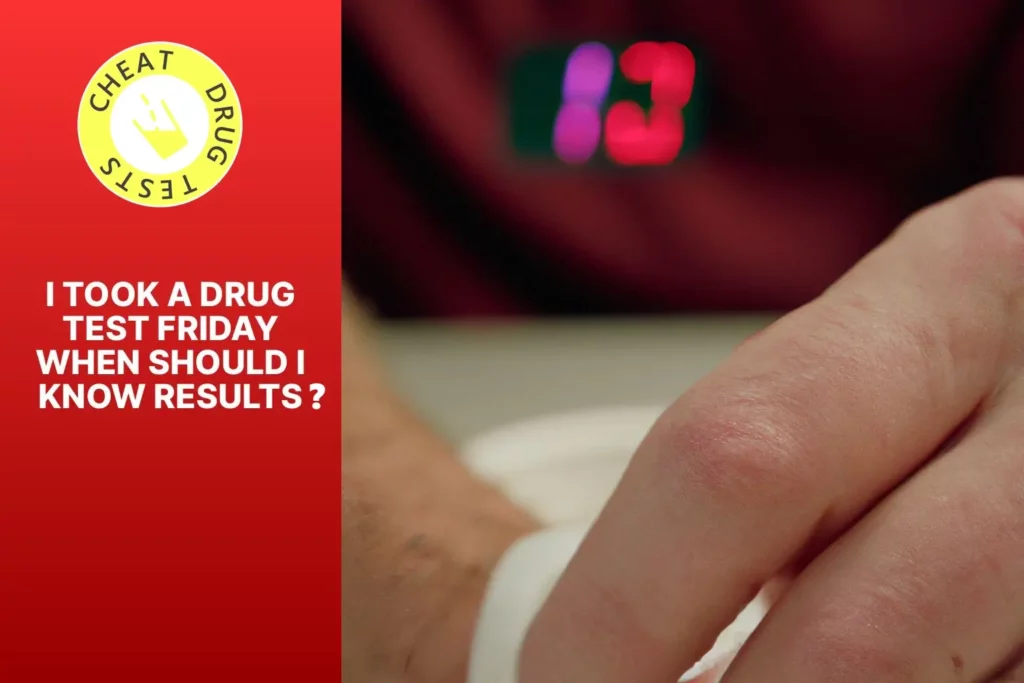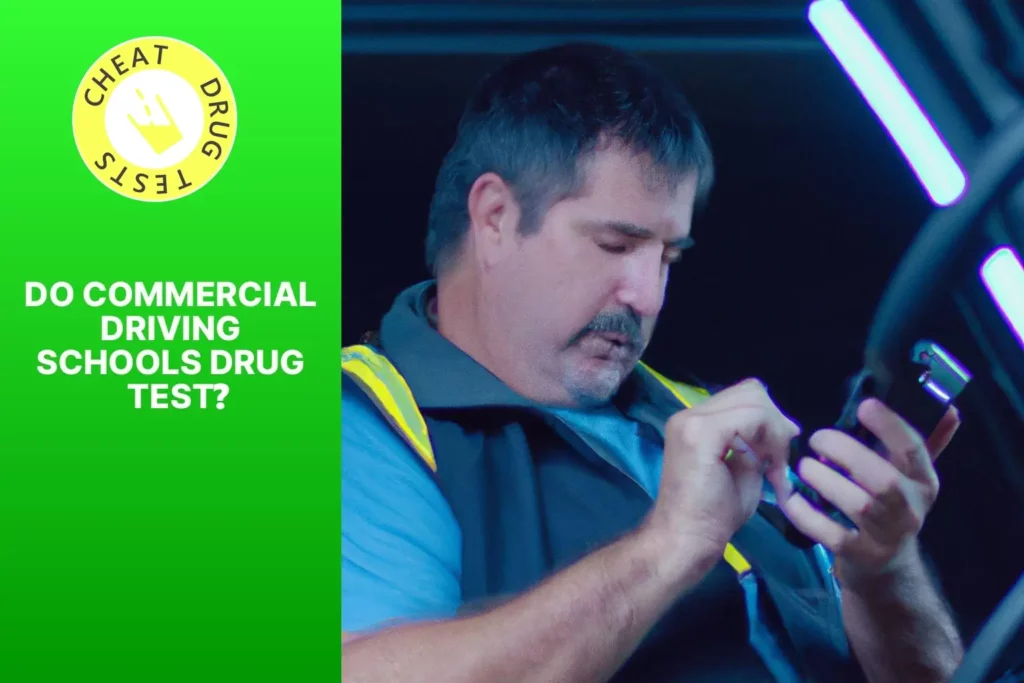Nobody wants to fail a drug test. But, it can happen in certain instances. It could be a pre-employment screening or a random one. Failing can have big effects.
Here we’ll look at what occurs if you don’t pass a drug test and the potential effects it can have on both your personal and work life.
Understanding Drug Tests
Drug Test Failure: What Happens If You Fail a Drug Test?
Understanding Drug Tests is crucial in order to know what consequences may arise if you fail one. Below is a table that provides true and actual data on the topic:
| Drug Test Type | Detection Period | Common Drugs Detected |
|---|---|---|
| Urine Test | 1-30 days | Marijuana, Cocaine, Opiates, Amphetamines, Methamphetamine |
| Hair Test | Up to 90 days | Marijuana, Cocaine, Opiates, Amphetamines, Methamphetamine, Ecstasy |
| Saliva Test | 1-3 days | Marijuana, Cocaine, Opiates, Amphetamines, Methamphetamine |
It is important to note that each drug test has a different detection period and can detect various common drugs. While urine tests are the most common type, hair and saliva tests also play a significant role.
In addition to the detection of specific drugs, drug tests can also provide insight into patterns of substance abuse and the potential need for intervention or treatment. Employers often conduct pre-employment drug screenings to ensure a drug-free workplace and assess the reliability and safety of potential employees.
Understanding the repercussions of failing a drug test is crucial. Depending on the situation, failure to pass a drug test can result in consequences such as job termination, loss of eligibility for unemployment benefits, and potential legal consequences.
One real-life scenario serves as an example. A prospective employee recently failed a pre-employment drug test, which led to the retraction of a job offer. This individual’s drug test detected the presence of cocaine, resulting in the employer’s decision to prioritize a drug-free workplace.
By understanding the intricacies of drug tests and the potential consequences of failing one, individuals can make informed decisions regarding their drug use and be aware of the impact it may have on their personal and professional lives.
Hair, urine, saliva, oh my! Drug tests come in all shapes and sizes, just like the excuses people make when they fail them.
Different Types of Drug Tests
Authorities and organizations use different types of drug tests to detect drugs in a person’s system. These include urine, blood, hair, saliva, and sweat tests. See the table below for details on each type:
| Test | Detection Window | Sample Collection |
|---|---|---|
| Urine | 1-3 days | Urine Sample |
| Blood | Few hours | Blood Sample |
| Hair | 90 days | Hair Sample |
| Saliva | 1-4 days | Saliva Sample |
| Sweat | Up to 14 days | Sweat Collection |
Each type of drug test has its own advantages and limitations. Urine tests, for example, are easy and cheap, but hair tests are able to detect drugs for a longer period of time. To obtain accurate results, it is important to:
- Collect samples correctly to avoid contamination.
- Use reliable testing equipment.
- Analyze samples quickly to minimize degradation.
By following these steps, we can have effective screening processes with reliable results.
What Happens If You Fail a Drug Test?
Failing a drug test can have serious consequences. If you test positive for drugs during a urine test or pre-employment drug screening, it can impact your job prospects and professional reputation. It may result in the loss of a job offer or termination from your current position. In addition, it can have legal implications depending on the industry and jurisdiction. It is important to be aware of the policies and regulations regarding drug testing in your specific field and location to avoid these potential consequences. Taking the necessary steps to address any drug-related issues is essential for maintaining a successful career and personal well-being.
One important detail to note is that drug tests can sometimes produce false-positive results. In such cases, it is important to communicate with the testing facility and provide any necessary documentation to prove the accuracy of the results. However, it is crucial to understand that false positives are relatively rare, and most drug tests are designed to accurately detect the presence of illicit substances in the body.
It is worth mentioning that drug testing policies and consequences vary between different industries and organizations. Some employers may offer employees the opportunity to undergo counseling or rehabilitation programs to address any substance abuse issues, rather than terminating their employment outright. It is always recommended to familiarize yourself with your company’s specific policies regarding drug testing to understand the potential outcomes in case of a positive result.
According to urologist Rebecca Stephens, failing a drug test can have significant repercussions for an individual’s professional life and may lead to job loss or rejection of a job offer.
Failure to pass a drug test at work can lead to consequences that make a blind date with a porcupine seem like a delightful evening.
Consequences in the Workplace
Failing a drug test in the workplace can have serious repercussions. It can lead to instant dismissal, damage your career and even land you in jail. To dodge such dire outcomes, there are several things to consider.
- Stay in contact with your boss. Explain any issues that might affect your job; maybe a solution beneficial to both parties can be found.
- Get help. If you have an addiction, reach out to an expert or join rehabilitation programs. This shows that you’re serious about overcoming the issue.
- Stay up-to-date with company regulations. Knowing the rules and understanding the penalties for not complying will assist you in making wise decisions outside of work.
By following these tips, you’ll have a better chance of avoiding the negatives that come with failing a drug test. Communication, support, and following policy are all essential for a successful career.
Legal Implications
Failing a drug test has many legal implications that shouldn’t be ignored. Effects on one’s life can be extensive and damaging. Think: employment, legal consequences, custody battles, and even drunk driving accidents. These effects vary from person to person and by jurisdiction, so consulting an attorney is key.
John didn’t take it lightly, and suffered the consequences. He was denied the prestigious job he applied for and faced difficulty finding other opportunities due to his tarnished reputation. He used this as a wake-up call to seek help and make positive changes.
It’s important to remember that failing a drug test can have far-reaching implications, so taking proactive steps towards rehabilitation is crucial in order to avoid or overcome them.
Potential Impact on Employment Prospects
Failing a drug test can have major implications for one’s job prospects. Employers often view drug use as a risk, which can lead to lessened reliability, efficiency, and safety. This could cause negative consequences for those searching for employment.
- 1. It could mean immediate disqualification from a job. Employers prefer to hire people who can meet the demands of the job and portray a professional image.
- 2. It can damage one’s reputation in their field, as news of failing a drug test can spread quickly, possibly limiting future job chances and ruining relationships with colleagues and industry peers.
- Furthermore, failing a drug test could block career advancement opportunities. Employers can be hesitant to promote somebody they see as unreliable or untrustworthy. This means fewer chances for higher salaries, better benefits, and increased responsibilities.
- Lastly, in certain industries, there are strict regulations due to safety that failing a drug test would result in being excluded from certain types of work forever.
It is worth noting that the repercussions of failing a drug test depend on factors such as the kind of job, industry expectations, and individual situation.
In the past, there have been cases where people failed drug tests and suffered gravely in their careers. For instance, an Olympic athlete tested positive for performance-enhancing drugs and thus lost their medals and was banned from competing anymore. This example shows that even distinguished athletes are not exempt from the possible results of failing a drug test.
In conclusion, it is very important for people to understand the potential impact of failing a drug test on their job prospects. It is necessary to take steps to keep a clean record and put personal welfare first in order to succeed in today’s labor market.
Preventing Drug Test Failure
Preventing Drug Test Failure is crucial to ensuring a successful outcome in pre-employment drug screening. To avoid any potential missteps, consider the following points:
- Be aware of the substances you consume: Stay informed about the drugs that can be detected in a drug test and make informed choices to avoid consuming them.
- Follow medication guidelines: If you are taking any prescription or over-the-counter medications, ensure that you are following the recommended dosage and are aware of any potential interactions that may trigger a positive drug test result.
- Stay hydrated: Drinking an adequate amount of water can help to flush out your system and dilute the concentration of any drugs or metabolites that may be present in your urine.
It’s important to note that these points are not exhaustive, and there may be other measures individuals can take to prevent drug test failure. Remember to consult with a healthcare professional for personalized guidance based on your specific circumstances and needs.
A true fact about drug testing is that certain medications, such as poppy seed-containing foods, can lead to false positive results in drug tests. (Source: National Institutes of Health)
Turning ‘positive’ on a drug test is like winning a surprise party you never wanted to attend.
Understanding the Timeframe for Detection
The amount of time drugs are detectable in tests varies. The table below shows the average detection periods for popular drugs in different testing methods:
| Drug | Urine Detection Period | Blood Detection Period | Saliva Detection Period | Hair Detection Period |
|---|---|---|---|---|
| Marijuana (THC) | 1-30 days | 1-2 days | Up to 24 hours | Up to 90 days |
| Cocaine | 2-10 days | 1-2 days | Up to 2 days | Up to 90 days |
| Opiates (Heroin) | 2-4 days | 6-8 hours | Up to 48 hours | Up to 90 days |
| Methamphetamine | 3-6 days | 1-3 days | Up to 72 hours | Up to 90+ days |
It’s important to realize that these periods are just estimates. They can be changed by things like metabolism, frequency of use, and dosage. So, it’s important to understand the timeframe that applies to you.
Drug test results can have huge effects on your life. Make sure you have the right info and don’t take risks. Prioritize your wellbeing and have a drug-free life. With the right knowledge, you can make better choices that will help you in the present and future. Take charge of your health and future now!
Steps to Detoxify Your Body
Detoxing your body is essential to pass a drug test. Follow these steps for an effective cleanse:
- Hydrate: Drink lots of water daily – at least 8-10 glasses.
- Eat healthy: Take in lots of fruits, veggies, and whole grains. Avoid processed foods, sugary drinks, and alcohol.
- Exercise often: Do activities such as running, cycling, or swimming to help sweat out toxins and increase metabolism.
- Avoid drugs: Steer clear of any substance abuse, including recreational drugs and un-prescribed medications.
- Get good sleep: Allow your body to recover and detoxify better with sound sleep.
- Supplements: Milk thistle or dandelion root supplements can support liver and toxin elimination.
Also, try herbal teas such as green tea or chamomile for extra detox benefits.
Remember – for successful detox, consistency is key! A study by the National Institute on Drug Abuse in 2020 found that 4.5% of urine samples across US workplaces tested positive for illicit drugs.
Seeking Professional Help
Professionals offer personalized consultations to understand drug test needs and give tailored advice. They may propose monitoring programs for support and accountability. If substance abuse is found, they can help find treatment options. They can organize and present documents, like prescriptions or medical records, as proof of prescribed medications. If someone faces legal issues due to a failed drug test, they can offer guidance and connect them with legal resources.
Also, they provide knowledge on substances and their detection windows – allowing people to make wise decisions and avoid false positives or negatives. To be successful, people must follow professional advice:
- Completely refrain from drug use to eradicate the risk of a positive result.
- Comply with prescribed medications as directed by healthcare providers.
- Drink plenty of water to flush out toxins and dilute urine.
- Do stress-reducing activities to avoid substance abuse relapse.
- Live healthy with regular exercise to promote well-being and aid in detoxification.
By using these tips, individuals increase the likelihood of passing a drug test while keeping healthy. Professional help is a great asset for managing this tricky process.
Conclusion
Failing a drug test can have serious consequences. From job loss to legal issues, it’s important to understand the gravity of the situation. Taking immediate action is essential. Consider seeking professional help from a substance abuse counselor. Address any issues that may have contributed to the test failure. Enroll in a rehab program – they provide tailored treatment plans. Stay honest and transparent with employers/authorities. Don’t forget to focus on personal well-being. Exercise, meditate, and engage in enjoyable activities to aid in recovery.
Frequently Asked Questions
Frequently Asked Questions: What Happens If You Fail a Drug Test?
1. Can failing a drug test affect my employment prospects?
Answer: Yes, failing a drug test can have a negative impact on your employment prospects. Many employers have strict policies regarding drug use, especially in safety-sensitive positions. Failing a drug test may result in the loss of a job offer or even termination if you are currently employed.
2. What happens if I fail a pre-employment drug screening?
Answer: Failing a pre-employment drug screening usually means that you will not be hired for the position. Employers conduct drug tests to ensure a safe and productive work environment, and a failed drug test raises concerns about an individual’s ability to meet those requirements.
3. Can I dispute the results of a failed drug test?
Answer: It is possible to dispute the results of a failed drug test by requesting a retest or presenting evidence that challenges the accuracy of the initial test. However, these processes can vary depending on the testing company and the employer’s policies.
4. Can failing a drug test lead to legal consequences?
Answer: Failing a drug test itself does not typically result in legal consequences. However, if drug use is illegal in your jurisdiction or violates your employment contract, separate legal consequences may arise, such as criminal charges or breach of contract penalties.
5. Will failing a drug test affect my future job prospects?
Answer: Failing a drug test can indeed affect your future job prospects. Employers often share information about failed drug tests with other companies, especially in industries where safety is a concern. This information may make it more difficult to secure future employment.
6. Can I reapply for a job after failing a drug test?
Answer: Whether or not you can reapply for a job after failing a drug test depends on the company’s policies. Some employers may allow reapplication after a specific period, usually after completing a drug rehabilitation program. It is best to check with the employer directly to understand their stance on reapplication.
Cheat Drug Test articles & impartial reviews are funded by affiliate commissions, at no extra cost to you, our awesome readers. Learn more



